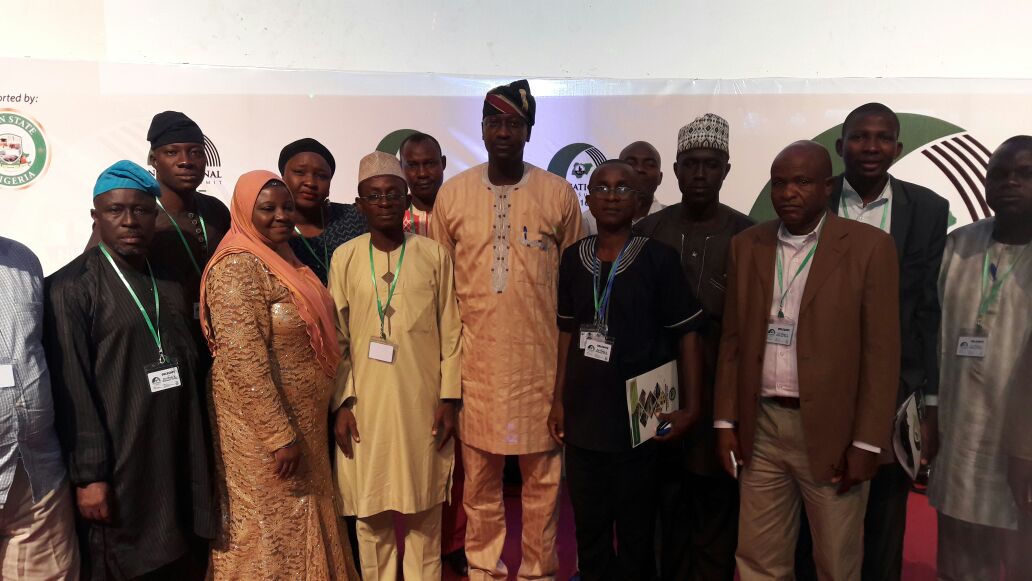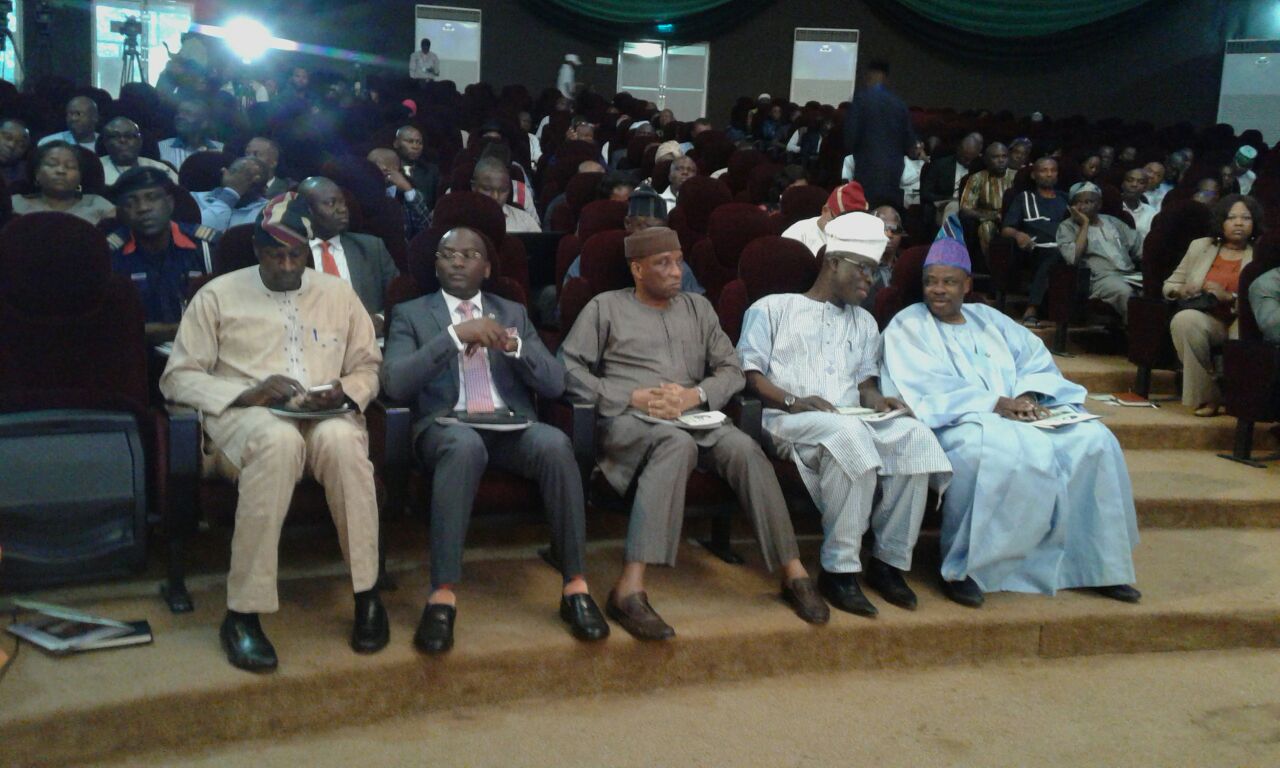Fragile national cohesion: NUJ summit proffers recipe

In 1914 when all ethnic nationalities, creeds and shades of interests were consummated to form a nation called Nigeria by the British colonialists, nobody envisaged trouble there in.
Apparently, the primary motive behind the annexation was to serve as a unifying force for all ethnic nationalities, for prior to that period, everyone held onto his or her ethnic values, customs, traditions and beliefs.
Prior to the amalgamation too, various ethnic groups were operating independently without any interference from the next neighbour. The ethnic independence known as a system on its own subsisted for long until the plan to unify all creeds was hatched.
Arriving at a decision to bring all areas into one nation was herculean because none of the major ethnic nationalities was ready to play second fiddle as the phobia of being subservient was on the rise. The dominance posture of some ethnic formations also accentuated the fear of perpetual placement on the lower rung of the ladder if the proposal was allowed to scale tribal and ethnic hurdles.
Despite the initial opposition from some aggrieved groups on the necessity of the formation of a single entity, it was eventually resolved that what seemed to be a mere illusion could be a reality. And thus, the country popularly referred to as giant of Africa was formed but not without resentment.
Whenever the formation of the country called Nigeria is mentioned, the name Lord Lugard and members of the colonial family readily come to mind.
The journey of Nigeria as an independent nation began in 1960 and as a republic in 1963 following the departure of colonial imperialists from the Nigerian soil.
Beside individual efforts of the proponents of independence and republic for Nigeria, the media was the major weaponry that laid siege on the colonial masters to take leave of this soil since their stay was no longer welcomed.
For Nigerians, it was a new dawn because it would be antithetical for the country to be taking order from another country or better put, to be seen as a vassal.
Thus, the power of the media has become so grown and recognised globally that no one, regardless of social status, dare toy with the might of the media. Being indispensable has conferred on it certain responsibility, apart from informing, educating and entertaining; it has metamorphosed into an agenda setter for the society. Little wonder it is regarded as Fourth Estate of the Realm.
Cognizant of the power enshrined in the media, it could be used positively or negatively, though there are constitutional provisos that check the excesses of the media in case of abuse.
The running of the media is for both the public and private institutions. And in Nigeria today, there are numerous media organisations each operating in line with their in-house styles and philosophies.
Before the independence, the media as noted elsewhere was at the vanguard of prosecuting the campaign against the colonial family and also used to strengthen the bond and unity among different ethnic nationalities.
But the trend of events today showed that elements of disunity have crept into the system and the reality has starred everyone in the face especially the imminent collapse of the nation occasioned by inevitable fault lines of religion, ethnicity, nepotism and unbridled quest for wealth.
To some Nigerians, the media including radio, television, newspaper, magazine and even social media platforms, has remained in the forefront in protecting and preserving the entity called Nigeria in the comity of nations, while others held the belief that information dished out from some sections of the media was threatening the continued existence of the country as an entity.
This is coupled with the ceaseless and relentless onslaught of terror groups in different parts of the country and the attention of the media in reporting their activities.
Just last week, over 460 members of Nigeria Union of Journalists converged on Abeokuta, Ogun State capital for the maiden edition of national media summit to x-ray multifarious issues confronting the country on the theme "The Media and National Unity".
At the three day event held at Green Legacy Resort, Olusegun Obasanjo Presidential Library, which formally opened on Tuesday and dovetailed to Thursday, different fora were provided for eminent Nigerians to address the multitude of problems aiding the fragility of the country on one hand and the role of the media on the other.
In his keynote address, former President Olusegun Obasanjo, said the media should objectively inform, educate and entertain, saying its relevance underlines its label as the "Fourth Estate" by serving as watchdog to uncover the excesses of the other "Estates".
He explained that the process of deepening democracy in Nigeria involves empowering people to participate in the governance process and stated that the role of journalists was to provide the space for constructive engagement between the people and the government as well as promoting good governance.
The ex-president alleged that some journalists in the country rather than maintain neutrality all through in their practice, have been seen to be partisan thus influencing news items and editorial policy in their respective places of work.
He said the NUJ summit could only bear fruit if a niche was found for the media in the nation's march to greater national cohesion particularly in this historical time of the country.
"We are faced with great disparity in news items of the same event. Little or no attention is paid to accuracy, coherence, truth, clarity, fairness and objectivity. Many Nigerian journalists are still partisan telling the news from the viewpoint of the owners of the media houses.
"Media owners with political affiliations tend to be politically co-opted, thereby influencing editorial policy in line with their persuasions and are largely driven by the profit motive and often ignore their social responsibility roles. The fact still remains that people are more interested in bad news than the good.
"Oddly, the media use this as an advantage to make a mountain out of a molehill in order to sell their papers in the case of newspapers and magazines and for TV, use provocative images or clips to sustain viewership.
"In recent times, I see Nigeria journalists pretending to be oblivious of the devastating role that the media has played in major conflicts on the continent. For instance, the case of the role of the press in triggering the Rwanda Genocide is instructive for Nigeria as we are increasingly polarised and divided along ethnic lines with the press fanning the embers of division and separation. The immediate concern for me is for the press not to be used as a wedge for separating us but for the press to be an adhesive for bridging gaps.
"For me, this summit will only be successful if we find a niche for the press in our march to ensuring greater national cohesion especially at this time in our history. At no time in our history, except probably during the civil war has Nigeria being so fractured in the feeling of oneness and sense of belonging by the citizenry.
"In the last four months, we have an average of twenty hotspots across the country with huge potential for national disintegration. Among the top three of these hotspots are the activities of the Niger Delta Avengers in the South-South, Boko Haram insurgency in the North-East and herdsmen-farmers' clashes across all geopolitical zones.

"The twin questions that immediate arise are: how did we get to where we are; and what actions must we take to arrest the slide towards fractionalisation and national disintegration and get back on the national unity track to which the founding fathers laboured and for which many lives were lost during the civil war? It is to these questions that this summit must find answers by finding roles of continual nation building for the media.
"Let me emphasize that national cohesion is not an event, but a process of constructing an integrated citizenry with a sense of belonging among members of different groups. It can only be achieved through the regulation and reconciliation of differences, and competing interests and demands," Obasanjo said.
Also speaking, Governor Abdulfatah Ahmed of Kwara State, urged the media to use the power conferred on it to foster national unity despite obvious diversity of the country.
Ahmed, who spoke through his commissioner for Information and Communications, Mahmud Babatunde Ajeigbe, appealed to the media to use its reportage to de-emphasize terror activities and divisive tendencies.
He said the press should embark on aggressive campaign to promote unity, sustain good governance and democratic institution.
Describing the media summit as timely and pivot, the governor said the nation needed the media to set up the agenda for good governance and avoid biased reporting.
"This national media conference has come at a pivotal moment in Nigeria, when we need the media to live up to their social responsibility by setting the agenda for governance and reporting without bias.
"No doubt, the media is not just a mere instrument, rather it is an institution in its own right with power and influence to shape the nature and essence of human societies.
"Indeed, we cannot discuss Nigeria's history without acknowledging the role the Nigerian media has played over the years. For instance, the Nigerian journalists were foot soldiers for Nigeria's nationalist agitation in the years leading to independence.
"In furtherance to this, is the pivotal role the Nigerian media played in enthroning and entrenching democracy in the country as can be seen in its partnership with other civil society groups to end military rule mid 1999.
"No doubt, the Nigerian media has come a long way as demonstrated in the quality and array of platforms currently competing for a niche in the dynamic media industry.
"It is therefore imperative that the Nigerian media industry, including the new media, utilize their power and influence appropriately to foster national unity in spite of the profound diversity of Nigeria," Ahmed said.
The NUJ President, Abdulwaheed Odusile, said the summit was in furtherance of the union's repeated commitment to national unity, adding that it was also aimed at providing a platform for journalists to brainstorm over the various problems facing the country and attempt to find solutions to them.
No fewer than 35 councils of the union participated in the summit including the Kwara State council contingent led by its chairman, Abiodun Abdulkareem.
Cloud Tag: What's trending
Click on a word/phrase to read more about it.
Arik George Innih Oluwarotimi Boluwatife Adenike Igosun Yekini Adio Modibo Kawu Taofeeq Olateju Ike Ekweremadu Salmon Babatunde Salmon Kayode Bankole Saliu Ajibola Ajia Osinbajo Salake Ndama Al-hassan Bayer Nigeria Limited Oba Abdulrahim Makama Of Kaiama Omupo Rotimi Oyedepo Osi Kuliyan Geri Abdulwaheed Musa AbdulKareem Yusuf Danhawa John Kehinde Salako Binta Abubakar-Mora Henry Olaosebikan Ahman Pategi University Quran Baba Issa Ambassador Kayode Laro Adaramaja AGM Professional Services Olokoba Abdullahi Ayinla Tafidan Kaiama Senate Presidency Aliyu Muyideen Kayode Alabi Dagbalodo Lola Olabayo ITEM 7 Abubakar Baba Abubakar Olusola Saraki Ibrahim Akaje YAKOOYO Wasiu Onidugbe Abdulsalam A. Yusuf Ayodele Kuburat Olaosebikan Ilorin Airport Okanlawon Taiwo Olatunde Jare UNIFEMGA Bankole Omishore Sobi Hill Countryside Emerging Leaders Fellowship Ndakene Just Event Online Shuaib Abdulkadir Olota Of Odo-Owa Waziri Yakubu Gobir Abdulrahman Iliasu Kola Shittu Abdulfatah Ahmed Oja-Oba Alao Ayotunde Olaiya Lawal Olomu IFK Tunde Mukaila Mustapha Solomon Edojah Aishat Mohammed Lawal AbdulHamid Adi Saadu Alanamu Olabimpe Olani KSIRS Bahago Omu Aran Na\'Allah


